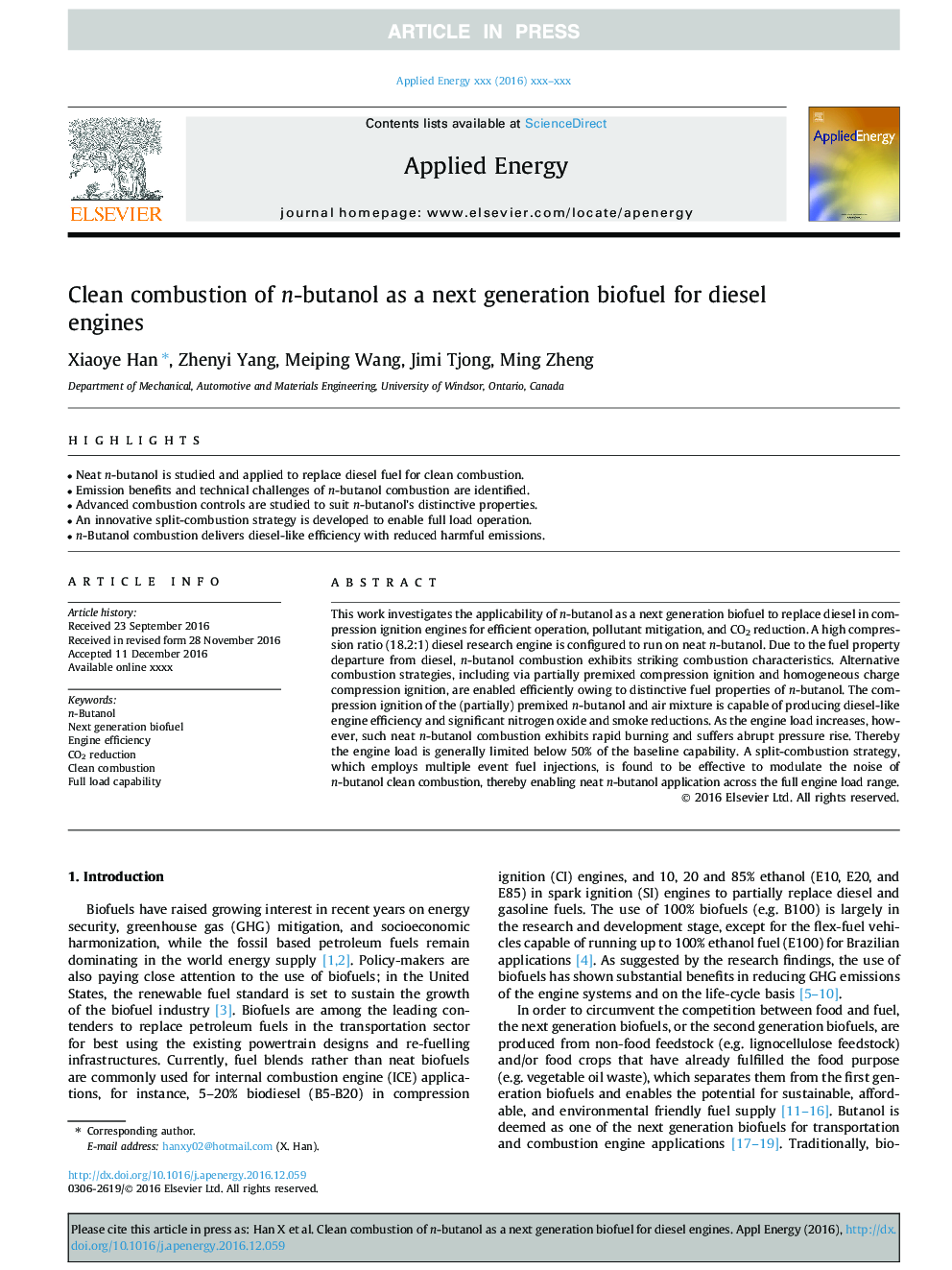| Article ID | Journal | Published Year | Pages | File Type |
|---|---|---|---|---|
| 4911099 | Applied Energy | 2017 | 13 Pages |
Abstract
This work investigates the applicability of n-butanol as a next generation biofuel to replace diesel in compression ignition engines for efficient operation, pollutant mitigation, and CO2 reduction. A high compression ratio (18.2:1) diesel research engine is configured to run on neat n-butanol. Due to the fuel property departure from diesel, n-butanol combustion exhibits striking combustion characteristics. Alternative combustion strategies, including via partially premixed compression ignition and homogeneous charge compression ignition, are enabled efficiently owing to distinctive fuel properties of n-butanol. The compression ignition of the (partially) premixed n-butanol and air mixture is capable of producing diesel-like engine efficiency and significant nitrogen oxide and smoke reductions. As the engine load increases, however, such neat n-butanol combustion exhibits rapid burning and suffers abrupt pressure rise. Thereby the engine load is generally limited below 50% of the baseline capability. A split-combustion strategy, which employs multiple event fuel injections, is found to be effective to modulate the noise of n-butanol clean combustion, thereby enabling neat n-butanol application across the full engine load range.
Related Topics
Physical Sciences and Engineering
Energy
Energy Engineering and Power Technology
Authors
Xiaoye Han, Zhenyi Yang, Meiping Wang, Jimi Tjong, Ming Zheng,
